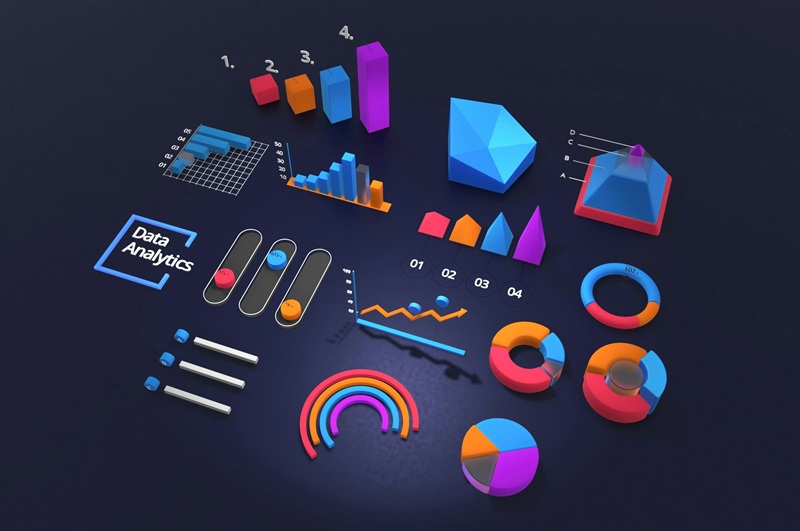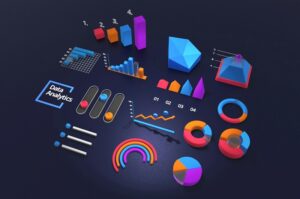PGDM in Data Analytics: Courses, Skills & Career Opportunities Explained

A PGDM in Data Analytics gives pursuers the knowledge to use data for strategic decision-making. The program combines sophisticated analytical tools with business management to help students understand difficult data and provide insightful analysis. It looks at important subjects like predictive modeling, artificial intelligence, big data management, and business intelligence. Data-savvy executives are sought for actively by companies in banking, healthcare, e-commerce, and technology to propel efficiency and creativity.
Emphasizing practical learning, the program develops mastery in data visualization, machine learning, and programming. The program enables professionals to convert raw data into actionable insight as businesses depend more and more on data-driven strategies, therefore transforming sectors and determining the direction of intelligent business management.
Read More - B Tech in AI: Unlocking a Future in Intelligent Innovation
PGDM in Data Analytics – Core Objectives of the Program
In data analytics, a PGDM develops management skills and analytical acumen, thereby helping experts get an important understanding of enormous volumes of data. By improving statistical modeling, machine learning, and big data technologies, this program helps students to handle challenging business issues. Ensuring expertise in data-driven decision-making, it exposes students realistically to programming languages like Python, R, and SQL.
The curriculum at the top PGDM Colleges in Delhi promotes critical thinking while improving the grasp of trends and optimization of organizational tactics. It closes the gap between insightful analysis and unprocessed facts, equipping professionals to motivate industry-wide innovation. Combining data with new technology lets the curriculum assist students become strategic leaders who harness data’s potential to create development and competitive advantage.
Key Subjects Covered
Fundamentals of Data Science
This subject deepens knowledge of exploratory data analysis, statistical techniques, and data structures. Students herein practice methods for preprocessing, cleaning, and dataset analysis to ensure accuracy and dependability. They become excellent at turning unprocessed data into useful business insights.
Big Data Management
This subject gives students knowledge in scalable frameworks while handling large datasets. To maximize storage and retrieval techniques, they become experts in NoSQL, Spark, and Hadoop databases. Through practical implementations, they develop the ability to create effective data structures improving computational performance and commercial results.
Machine Learning and AI in Analytics
With machine learning techniques, this topic enables students to create prediction models and automate decision-making. By investigating supervised and unsupervised learning, deep learning, and neural networks, they enable intelligent systems that propel innovation across sectors.
Business Intelligence & Data Visualization
This subject helps students to turn difficult data into understandable visual stories. They use Tableau and Power BI to build dynamic dashboards, allowing companies to extract insights, improve strategic decision-making, and maximize operational efficiency.
Predictive & Prescriptive Analytics
This subject guides students in projecting future trends and suggesting the best corporate practices. Mastery of regression models, time-series analysis, and optimization methods ensures that one can predict changes in the market and provide data-driven solutions optimizing business development.
Programming Languages (Python, R, SQL)
For data processing, statistical computation, and database administration, this subject develops expertise in Python, R, and SQL. Students this way ensure accuracy in data-driven decision-making by writing effective code to automate tasks, create analytical models, and extract valuable insights.
Cloud Computing and Data Security
This subject teaches students to use scalable data storage and computing on cloud systems like AWS and Azure. Ensuring strong data protection in an ever-digital company environment, they are experts in encryption, cybersecurity frameworks, and risk-mitigating techniques.
Capstone Projects and Industry Internships
This subject envelops students in real-world problem-solving while bridging academic understanding with practical application. On data-driven projects, they work with business executives to hone their analytical abilities, improve employability, and equip themselves for leadership in the changing digital terrain.
Skills Acquired in PGDM Data Analytics
PGDM in the best PGDM Colleges in Delhi develops a broad skill set that helps professionals to precisely negotiate challenging data environments. Mastering statistical analysis, machine learning, and big data technologies, students grab the gist of predictive modeling and business intelligence. Their knowledge of Python, R, SQL, and other programming languages helps them to automatically and seamlessly handle data.
They improve critical thinking and problem-solving skills, turning unprocessed data into strategic insights. The application improves their ability to visualize data, enabling better communication of results. Through realistic industrial projects, students get real-world experience, ensuring their excellence in data-driven decision-making and corporate creativity.
Career Opportunities after PGDM in Data Analytics
A PGDM in Data Analytics opens a variety of job prospects across sectors, enabling people to lead data-driven change. The diploma holders as Data Scientists create prediction models, use machine learning, and gather useful information to maximize business plans. As Business Intelligence Analysts, they create dynamic dashboards and reports that help businesses see patterns and guide choices. Trained as Data Engineers, they create strong data pipelines ensuring flawless storage, processing, and retrieval of large volumes of data.
Using sophisticated statistical modeling, risk analysts in the financial industry evaluate market uncertainty, spot anomalies, and help reduce financial risks. Using data-driven insights, Marketing Analysts break consumer behavior, maximize campaigns, and improve customer interaction. Data Engineers in artificial intelligence and machine learning create sophisticated algorithms, automating tasks and creative commercial solutions. Assessing product performance, improving user experiences, and promoting data-backed innovation, Product Analysts help companies stay competitive in a changing digital terrain.
Industries Hiring PGDM Data Analytics Professionals
- IT & Software Companies
- Banking & Finance
- Healthcare & Pharmaceuticals
- E-commerce & Retail
- Manufacturing & Supply Chain
- Consulting & Market Research.
Concluding Remarks
For those who want to become professional data-driven decision-makers and technology innovators in data analytics, a PGDM in Data Analytics is the perfect program. Professionals drawn to logical problem-solving, statistical analysis and corporate planning excel in this exciting sector. Aspiring data scientists, analysts, and engineers hone their knowledge of machine learning, big data management, and predictive analytics to ensure they shine in turning unprocessed data into useful insight.
Tech-savvy grads looking for jobs in artificial intelligence, cloud computing, and data security need advanced skills to negotiate the changing digital economy. Those already in a job hoping to improve strategic decision-making through business intelligence and data visualization acquire the skills necessary to propel organizational excellence. Those having backgrounds in engineering, computer science, finance, or mathematics use their analytical abilities to derive important insights from challenging data sets. As businesses value data competency more and more, this program enables people to define intelligent business management going forward.




